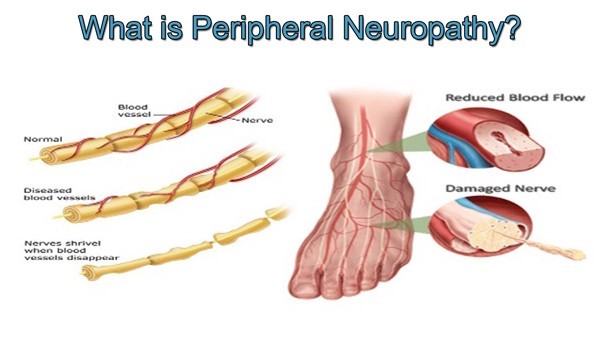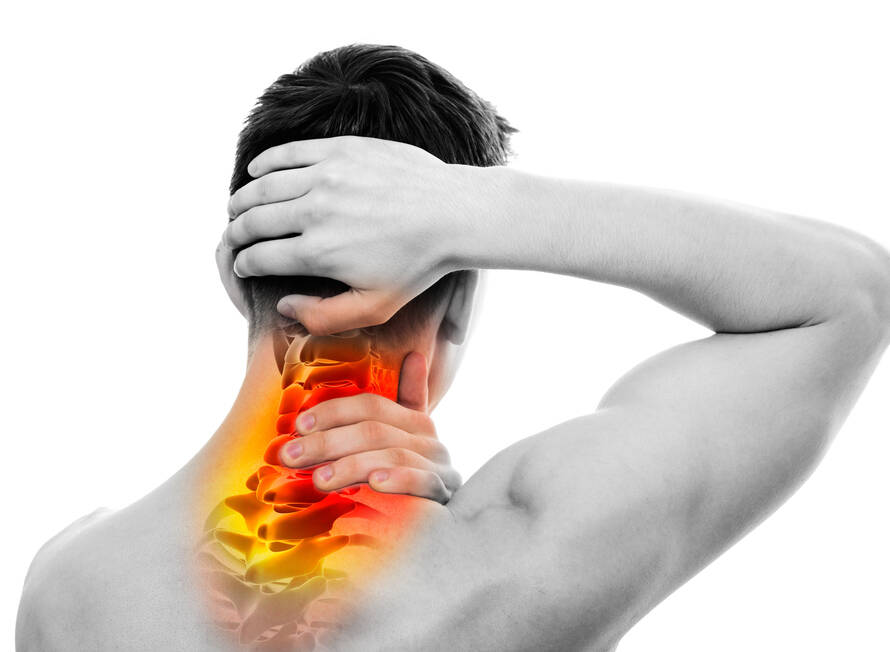India is the “Diabetes Capital of the World”. Between 60 and 70 percent of people with diabetes have some form of neuropathy, according to the “National Institute of Diabetes and Digestive and Kidney Diseases”.
Peripheral neuropathy, the most common form of diabetic neuropathy, is a result of damage to the nerves outside of the brain and spinal cord (peripheral nerves), which cause weakness, numbness and pain, usually in hands and feet. It can also affect other areas of the body.
In people with diabetes, the body’s nerves can be damaged by decreased blood flow, oxygen and nutrient supply due to high blood sugar levels. This condition is more likely when the blood sugar level is not well controlled over time.

Peripheral neuropathy can also result from traumatic injuries, infections, metabolic problems, inherited causes and exposure to toxins.
Signs and symptoms
- Gradual onset of numbness, prickling or tingling in your feet or hands, which can spread upward into your legs and arms.
- Sharp, jabbing, throbbing or burning pain.
- Extreme sensitivity to touch.
- Pain during activities that shouldn’t cause pain, such as pain in your feet when putting weight on them or when they’re under a blanket.
- Lack of coordination and falling.
- Muscle weakness.
- Feeling as if you’re wearing gloves or socks when you’re not.
- Paralysis in extreme conditions, if motor nerves are affected.
If autonomic nerves are affected, signs and symptoms might include heat intolerance, excessive sweating or not being able to sweat, bowel, bladder or digestive problems, changes in blood pressure, causing dizziness or lightheadedness.
Peripheral neuropathy can affect one nerve, two or more nerves in different areas or many nerves.
Risk factors
- Diabetes, especially if your sugar levels are poorly controlled
- Alcohol abuse
- Vitamin deficiencies, particularly B vitamins
- Infections, such as hepatitis B and C etc.
- Autoimmune diseases, such as rheumatoid arthritis and lupus, in which your immune system attacks your own tissues
- Kidney, liver or thyroid disorders
- Exposure to toxins
- Repetitive motion, such as those performed for certain jobs
- Family history of neuropathy
Complications
- Burns and skin trauma: You might not feel temperature changes or pain on parts of your body that are numb.
- Infection: Your feet and other areas lacking sensation can become injured without your knowing. Check these areas regularly and treat minor injuries before they become infected, especially if you have diabetes.
- Falls: Weakness and loss of sensation may be associated with lack of balance and falling.
Prevention
- Manage underlying conditions that put you at risk, such as diabetes, alcoholism or rheumatoid arthritis.
- Make healthy lifestyle choices that support your nerve health.
- Eat a diet rich in fruits, vegetables, whole grains and lean protein to keep nerves healthy. Protect against vitamin B-12 deficiency by eating meats, fish, eggs, low-fat dairy foods and fortified cereals. If you’re vegetarian or vegan, fortified cereals are a good source of vitamin B-12, but talk to your Health expert about B-12 supplements. Since B12 is used by the body to boost energy and to stimulate metabolism and nervous system, take it in the morning or early afternoon. Also, vitamin B12 supplement should be taken with food to avoid digestive upsets.
- Exercise regularly. With your Health expert’s recommendation, try to get at least 30 minutes to one hour of exercise at least three times a week.
- Avoid factors that may cause nerve damage, including repetitive motions, cramped positions that put pressure on nerves, exposure to toxic chemicals, smoking and overindulging in alcohol.
Natural Treatments for Peripheral Neuropathy
Inclusion of Vitamins B12 and Vit D rich food sources.
Cayenne Pepper – Cayenne pepper contains capsaicin, an ingredient in hot peppers that makes them spicy. Capsaicin has been used in topical creams for its pain relief properties. It decreases the intensity of pain signals sent through the body.
Warm Bath – Taking a warm bath with Epsom salt can be soothing and can also alleviate pain symptoms from neuropathy. Warm water increases blood circulation throughout the body, decreasing pain symptoms from numbness. If your sensory nerves are affected from peripheral neuropathy and you’re not as sensitive to temperature, be careful not to make your bath water too hot.
Exercise – Regular exercise can help to combat pain and improve your overall health. Being active can reduce your blood sugar, which, in turn, can reduce or slow down nerve damage. Exercise also increases blood flow to your arms and legs and reduces stress.
Essential Oils – Some essential oils, including chamomile and Roman lavender, help to increase circulation in the body. They also have pain-relieving and anti-inflammatory properties that could boost healing. Dilute essential oils (a few drops) in 1 ounce of a carrier oil such as olive oil. Applying these diluted oils to the affected area can reduce stinging and tingling pains.
Meditation – It can help to lower stress, improve your coping skills, and decrease your pain intensity. Taking a mind-body approach is a non-invasive technique that provides you with more control over your condition.
Acupuncture promotes natural healing by stimulating the body’s pressure points. This technique triggers the nervous system to release chemicals that can change the pain experience or threshold. Acupuncture helps to provide an energy balance to the body that can affect your emotional well-being too.
Appropriate diet and lifestyle changes can help to control and manage the symptoms of peripheral neuropathy and prevent further nerve damage.



